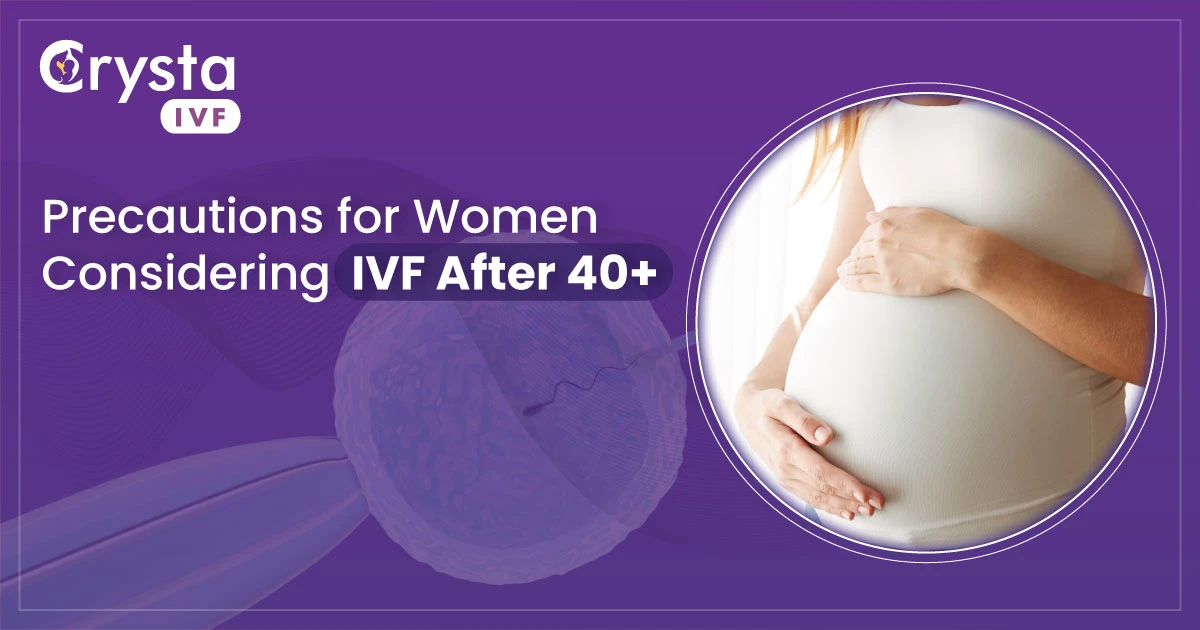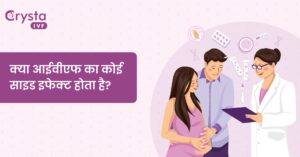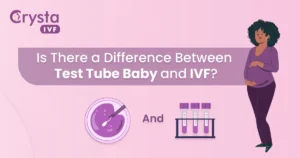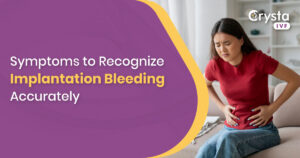The narrative around starting a family is shifting. Having a baby IVF after 40 years old is a trend these days. Today, many celebrities choose to embrace motherhood after the age of 40. The reason behind the trend is career pursuits, financial stability, or personal reasons. However, the reality is that the chance of getting pregnant naturally decreases with age. While someone in their 20s or 30s has a 25% chance of conceiving in a single menstrual cycle, this probability drops to 10% by age 40. This means that having the chance of successful IVF after 40, has roughly a 44%. This decline is primarily due to decreased numbers and the quality of eggs available for fertilization. Additionally, the risk of certain fertility-related conditions also increases with age.
Here in this blog, we will explore the options of considering pregnancy after 40 with a clear understanding of the potential risks involved. We’ll delve into the biological factors affecting fertility, the possibility of pregnancy complications, and the importance of consulting healthcare professionals.
Also Read: What is the Age Limit for IVF Pregnancy?
Is pregnancy at 40 high risk?
Due to technological advancements, fertility, pregnancy, and delivery are safely possible at the age of 40. However, there are certain risk factors you must know before going for an IVF treatment at the age of 40.
- Decreased Fertility- With increasing age, the egg quantity and quality naturally start declining, which makes it harder to conceive naturally. This is the reason why the risk of miscarriages increases. By age 40, the chance of getting pregnant in any given month is around 10%, compared to 25% in a woman’s 20s and 30s.
- Increased Risk of Chromosomal Abnormality- A woman’s eggs at birth are the same ones she will have throughout her life. As they age, the risk of chromosomal abnormalities in the eggs increases. This raises the chance of having a baby with Down syndrome and other chromosomal conditions.
- Higher Risk of Pregnancy Complications- While the fact is not sure, it has been seen that older mothers face an increased risk of certain pregnancy complications compared to younger women. This includes-
- Gestational diabetes- This type of diabetes develops during pregnancy.
- High blood pressure- This increases the risk of preeclampsia, a potentially serious condition.
- Preeclampsia- A condition characterized by high blood pressure and protein in the urine, which can harm both mother and baby.
- Placenta previa- When the placenta implants too low in the uterus, potentially causing bleeding during pregnancy or delivery.
- C-section- The likelihood of needing a cesarean section increases with age.
- Potential for Longer Labor- Some women over 40 may experience longer labor during childbirth. This can be due to several factors, including decreased muscle tone and elasticity in the birth canal.
Many women over 40 have healthy pregnancies and deliver healthy babies. However, be aware of the increased risks and consult with an IVF specialist for a thorough assessment and personalized advice before attempting to conceive after 40.

What are the Eligibility criteria for IVF?
Those who have failed early reproductive procedures can opt for IVF. Apart from this, there are several factors to consider while choosing IVF-
- Age- Age plays a significant role in IVF success rates. The age limit for IVF treatment in India is 50 years for women.
- Fertility Diagnosis- IVF is recommended for couples with some fertility issues, such as:
- Blocked or damaged fallopian tubes
- Low sperm count or motility in men
- Endometriosis
- Unexplained infertility
- Ovulation disorders
- Genetic disorders that could be passed on to offspring
- Medical Conditions- Certain medical conditions can impact and increase the risk during pregnancy. These may include-
- Uterine fibroids- These are benign tumors in the uterus that can affect implantation.
- Endometriosis- This condition involves the growth of tissue similar to the uterine lining outside the uterus, potentially impacting egg quality and implantation.
- Ovarian cysts- Large cysts can affect egg quality or block the fallopian tubes.
- Severe male factor infertility- In such cases, sperm quality might be insufficient for successful fertilization even with IVF.
- Uncontrolled chronic disease- Conditions like diabetes or high blood pressure require careful management before and during pregnancy.
- Previous fertility attempts- If other fertility treatments like ovulation induction or intrauterine insemination (IUI) haven’t been successful, IVF might be recommended.
The above are some general considerations and may differ from case to case. Consult a qualified IVF specialist to discuss your condition and risk factors.
Also Read: Foods to Eat and Avoid After Embryo Transfer: A Comprehensive Guide
Precautions to take while considering IVF at the age of 40
It is important to take several precautions to maximize the chances of success and minimize potential risks. Here are some key precautions to consider:
- Comprehensive Fertility Evaluation- Before starting IVF treatment, consult an IVF specialist for fertility evaluation to assess ovarian reserve, hormone levels, uterine health, and other factors that may impact IVF success.
- IVF process preparation- Be prepared for the various procedures involved in IVF, such as egg retrieval and embryo transfer. IVF can be an emotionally challenging journey. Seek support from your loved ones and practice stress-reducing techniques.
- Understand Age-related Factors- Be aware of the challenges with advanced maternal age, including decreased ovarian reserve, lower egg quality, and increased risk of chromosomal abnormalities.
- Realistic Expectations- Understand that IVF success rates decline with age, and planning to conceive after the age of 40 is risky. Set realistic expectations and be prepared for multiple treatment cycles and other options.
- Lifestyle Modifications- Adopt healthy lifestyle habits to optimize fertility. This may include maintaining a balanced diet, regular exercise, limiting alcohol consumption, avoiding smoking, and managing stress.
- Financial Planning- IVF can be costly, and success is not guaranteed. Before opting for IVF, Consider the financial implications of treatment, including the cost of multiple cycles, medications, and any additional procedures that may be necessary.
By taking these precautions, consult your doctor about any concerns. Yes, you can approach IVF after 40 with informed decision-making and confidence.
Also Read: How to Avoid Miscarriage After IVF Treatment
Wrapping Up: Ensuring Success and Safety in IVF After 40
While the desire for parenthood knows no age limit, women considering IVF after 40 must approach this path with thoughtful consideration and preparation. Timing becomes a key factor if you aim to conceive after 40. Track your menstrual cycle and identify your fertile window to maximize your chances. Understanding the success rates with age is crucial, as well as setting realistic expectations and fostering informed decision-making. By strategically increasing intimacy during this fertile window, you can improve your chances of conception. If you’ve been attempting to conceive without success, consult with a qualified IVF specialist if you’ve been trying for six months or longer.




